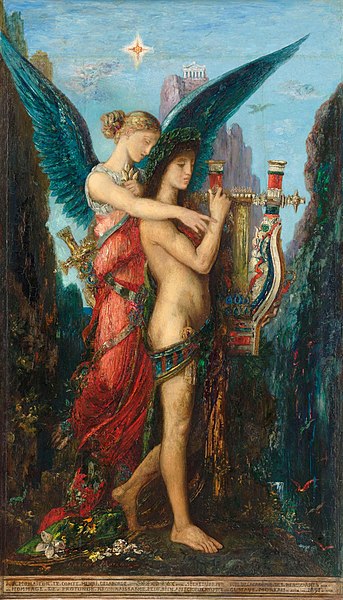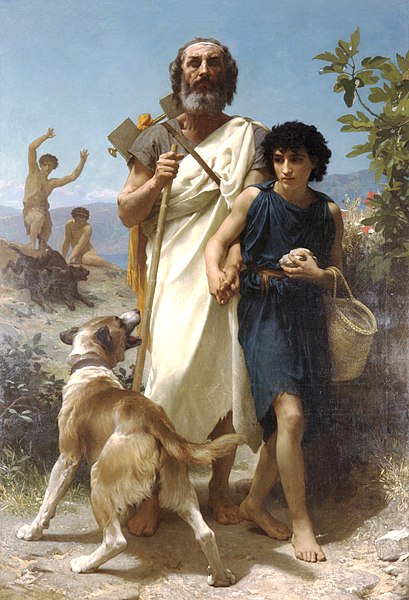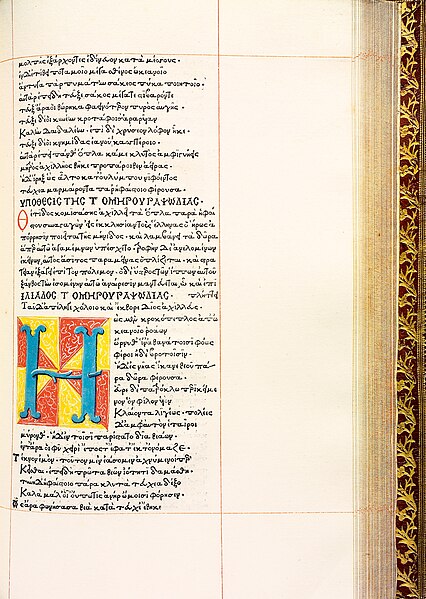Hesiod was an ancient Greek poet generally thought to have been active between 750 and 650 BC, around the same time as Homer. He is generally regarded by Western authors as 'the first written poet in the Western tradition to regard himself as an individual persona with an active role to play in his subject.' Ancient authors credited Hesiod and Homer with establishing Greek religious customs. Modern scholars refer to him as a major source on Greek mythology, farming techniques, early economic thought, Archaic Greek astronomy, cosmology, and ancient time-keeping.
Hesiod
Hesiod and the Muse (1891), by Gustave Moreau. The poet is presented with a lyre, in contradiction to the account given by Hesiod himself in which the gift was a laurel staff.
The Dance of the Muses at Mount Helicon by Bertel Thorvaldsen (1807). Hesiod cites inspiration from the Muses while on Mount Helicon.
Modern Mount Helicon. Hesiod once described his nearby hometown, Ascra, as "cruel in winter, hard in summer, never pleasant."
Homer was a Greek poet who is credited as the author of the Iliad and the Odyssey, two epic poems that are foundational works of ancient Greek literature. Homer is considered one of the most revered and influential authors in history.
Marble terminal bust of Homer. Roman copy of a lost Hellenistic original of the 2nd c. BC.
Homer and His Guide (1874) by William-Adolphe Bouguereau
Part of an eleventh-century manuscript, "the Townley Homer". The writings on the top and right side are scholia.
Page from the first printed edition (editio princeps) of collected works by Homer edited by Demetrios Chalkokondyles. Florence, 1489. Bibliothèque Nationale de France








